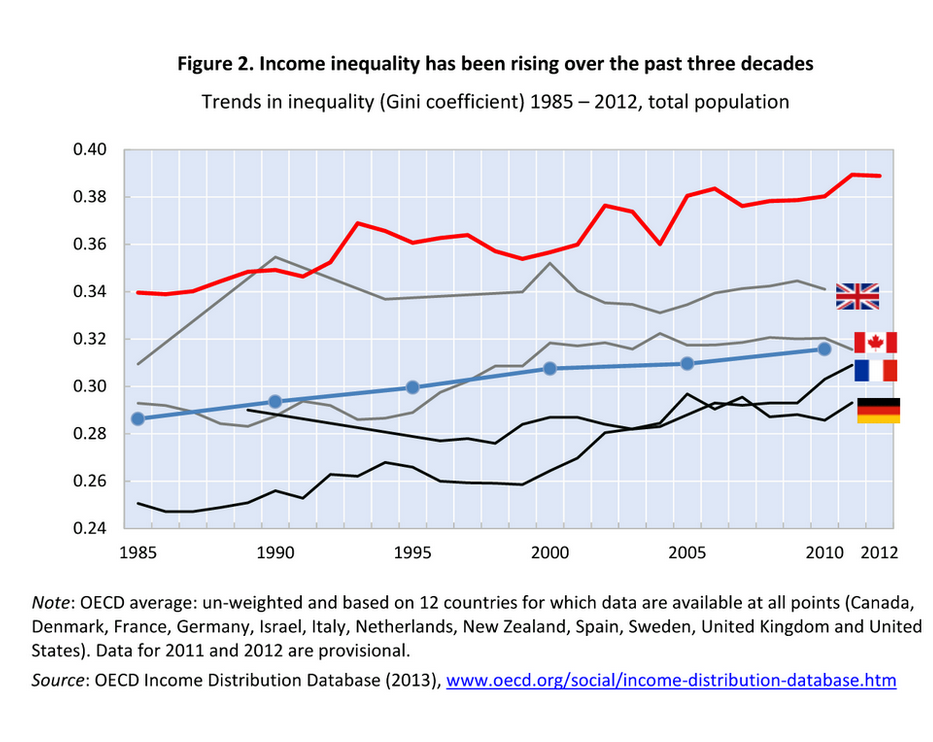This Great Graphic was tweeted by Jose Manuel Roche, who got it from the OECD. It shows the Gini coefficient, a widely used measure of income inequality, for five high wage economies in the 1985-2012 period.
The US is the red line, and except for a brief moment around 1990, its Gini coefficient is the highest. The blue line is an unweighted average of 12 OECD countries. Germany, France, and now even Canada, are below this average, but income inequality has grown through the period.
Separately, we note that the Institute for Economic Research in Germany finds that Germany has the greatest wealth inequality in the euro area. The top 1% of the population hold an average of 800,000 euros in financial assets or real estate. A full fifth of the German population has no private capital. It also found, as one would expect, greater wealth in the west than east and men have more wealth than women.
One issue that discussions of wealth and income disparity raise is how much of it is the result of capitalism and some iron law. Thomas Piketty in Capital in the Twenty First Century argues that because the rate of profit exceeds the rate of growth, inequality is inevitable. It has reached levels, he argues, that are socially and politically destructive. He argues that political action in the past helped temper and moderate those forces and can do so again.
While sympathetic to such arguments in general, I think the fact that profits exceed growth itself is not a law, but reflects a power disparity. How the social product is distributed between income claimants (business, workers, the state) is not a purely a function of economics, i.e., the confrontation in the market, which has the appearances of equality and freedom of choice. Rather, it has just as much to do with power and politics.
Can capitalism exist with more egalitarian societies? Looking at the Scandinavian countries, for example, the tentative answer needs to be yes. Does this resolve the fundamental challenges of capitalism ? The tentative answer is probably no. It is true that the kind of world painted by Charles Dickens does no exist any more, and Piketty is right that it was due to organized political action,. However, the market has grown and commodification has been extended to include childhood, for example, and leisure time. The ruining of the environment (regarding nature as commodity) and the vast waste generated, for example, is not a function of inequality of income or wealth.

